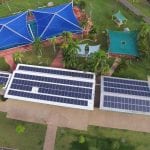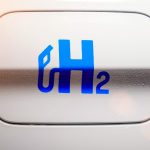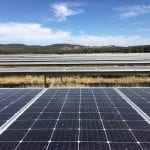Feed aggregator
We can’t stop rising sea levels, but we still have a chance to slow them down | Tamsin Edwards
Despite pandemic-enforced isolation, scientists from around the world have produced a vital climate change forecast
Sea levels are going to rise, no matter what. This is certain. But new
research I helped produce shows how much we could limit the damage: sea level rise from the melting of ice could be halved this century if we meet the Paris agreement target of keeping global warming to 1.5C.
The aim of our research was to provide a coherent picture of the future of the world’s land ice using hundreds of simulations. But now, as I look back on the two years it took us to put the study together, what stands out is the theme of connection running through it all – despite the world being more disconnected than ever.
Connecting digitally: our study brought together 84 people working at 62 institutes in 15 countries (nine in Europe, the US, Canada, Australia, New Zealand, Japan and China). I led the study but haven’t met many of my co-authors. Even if we had planned to meet, over half the 120 days I spent on the study have been since the first UK lockdown.
Connecting parts of the world: the world’s land ice is made up of global glaciers in 19 regions, and the Greenland and Antarctic ice sheets at each pole. Our methods allow us to use exactly the same predictions of global warming for each. This may sound obvious, but is actually unusual, perhaps unique at this scale. Each part of the world is simulated separately, by different groups of people, using different climate models to provide the warming levels. We realigned all these predictions to make them consistent.
Connecting the data: at its heart, this study is a join-the-dots picture. Our 38 groups of modellers created nearly 900 simulations of glaciers and ice sheets. Each one is a data point about its contribution to future sea level rise. Here, we connected the points with lines, using a statistical method called “emulation”. Imagine clusters of stars in the sky: drawing the constellations allow us to visualise the full picture more easily – not just a few points of light, but each detail of Orion’s torso, limbs, belt and bow.
Our process of joining the dots meant we could make a more complete prediction of the full range of possible futures – mapping out our uncertainties in the levels of the rising seas. For instance, if we reduce emissions from current pledges to meet the Paris agreement targets, which would reduce warming from more than 3C to 1.5C, the median predictions for sea level rise from melting ice reduce by half, from 25cm to 13cm, by 2100. For the upper end, there is a 95% chance the level would be less than 28cm if we limit warming to 1.5C, compared with 40cm under current pledges.
Connecting to each other: some of the initial conversations for the study were in person. Most memorable and important among them were visiting the ice sheet project lead, Sophie Nowicki, at Nasa to analyse their data in June 2019, and long walks discussing the statistical methods with my mentor and friend Jonty Rougier in Hastings. But even when we went digital, many of us kept a personal, sometimes emotional, connection under the pressures of work and family life amid the pandemic, and with a number of people involved in the research living in California close to the huge wildfires last summer.
The government has pledged over $800m to fight natural disasters. It could be revolutionary — if done right
Taylor awards $15 million grant to Darwin big battery that will cut gas generation
 Taylor promises $15 million to Darwin big battery, which is designed to support more solar and cut gas generation, and more funds for renewable micro-grids.
Taylor promises $15 million to Darwin big battery, which is designed to support more solar and cut gas generation, and more funds for renewable micro-grids.
The post Taylor awards $15 million grant to Darwin big battery that will cut gas generation appeared first on RenewEconomy.
Queensland joins Victoria in opposing rooftop solar tax, prefers battery support
 Queensland’s state Labor government joins Victoria’s in indicating it won’t back a move to tax solar households for electricity sent to the grid.
Queensland’s state Labor government joins Victoria’s in indicating it won’t back a move to tax solar households for electricity sent to the grid.
The post Queensland joins Victoria in opposing rooftop solar tax, prefers battery support appeared first on RenewEconomy.
Edify seeks approval for 10MW green hydrogen facility that could grow to 1GW
 Edify Energy kick-starts is ambitions for large-scale green hydrogen production, lodging development applications for 10MW plant near Townsville.
Edify Energy kick-starts is ambitions for large-scale green hydrogen production, lodging development applications for 10MW plant near Townsville.
The post Edify seeks approval for 10MW green hydrogen facility that could grow to 1GW appeared first on RenewEconomy.
Gupta’s cash-strapped GFG mulling sale of Australian solar and battery projects
 Sanjev Gupta's GFG Alliance seeks buyers or partners for its Australian solar and battery projects as it re-emerges from wreckage of Greensill collapse.
Sanjev Gupta's GFG Alliance seeks buyers or partners for its Australian solar and battery projects as it re-emerges from wreckage of Greensill collapse.
The post Gupta’s cash-strapped GFG mulling sale of Australian solar and battery projects appeared first on RenewEconomy.
New podcast: Great Solar Business
 Welcome to RenewEconomy’s newest podcast, in which Nigel Morris deep-dives into what makes a great solar business, and how to learn from the past and prepare for the future so that your business thrives.
Welcome to RenewEconomy’s newest podcast, in which Nigel Morris deep-dives into what makes a great solar business, and how to learn from the past and prepare for the future so that your business thrives.
The post New podcast: Great Solar Business appeared first on RenewEconomy.
Australia must kick the gas habit, because it is bad for our health
 Australia is scrambling to drill hundreds more gas wells, and more are planned. How could this be when the evidence of health impacts is so clear?
Australia is scrambling to drill hundreds more gas wells, and more are planned. How could this be when the evidence of health impacts is so clear?
The post Australia must kick the gas habit, because it is bad for our health appeared first on RenewEconomy.
Keith Pitt vetoes federal funding deal for wind and battery hub in Queensland
 Resources minister Keith Pitt intervenes to veto $280 million from government fund to Neoen's Kaban green energy hub in north Queensland.
Resources minister Keith Pitt intervenes to veto $280 million from government fund to Neoen's Kaban green energy hub in north Queensland.
The post Keith Pitt vetoes federal funding deal for wind and battery hub in Queensland appeared first on RenewEconomy.
CP Daily: Wednesday May 5, 2021
Verra, Greenpeace square off over criticism of forest carbon credit methodologies
Weak benchmarks to limit Washington LCFS impact in early years, traders say
The gas war is heating up and it’s only just getting started
 "No one is taking your BBQ tongs". Can the household fossil gas problem be solved without going through the wringer of a political culture war?
"No one is taking your BBQ tongs". Can the household fossil gas problem be solved without going through the wringer of a political culture war?
The post The gas war is heating up and it’s only just getting started appeared first on RenewEconomy.
Most US coal generators can’t compete with wind and solar, US study finds
 A new study shows that the vast majority of US coal plants are already more expensive to run than building new solar and wind, and that's accelerating.
A new study shows that the vast majority of US coal plants are already more expensive to run than building new solar and wind, and that's accelerating.
The post Most US coal generators can’t compete with wind and solar, US study finds appeared first on RenewEconomy.
Australia's states are forging ahead with ambitious emissions reductions. Imagine if they worked together
New Energy Solar expects to sell its two Australian solar farms by June
 ASX-listed New Energy Solar says its on track to exit Australian market by mid year, with negotiations with buyers for local solar farms well progressed.
ASX-listed New Energy Solar says its on track to exit Australian market by mid year, with negotiations with buyers for local solar farms well progressed.
The post New Energy Solar expects to sell its two Australian solar farms by June appeared first on RenewEconomy.
Liechtenstein prince accused of shooting Romania’s largest bear
Environmental groups say Prince Emanuel von und zu Liechtenstein shot bear, named Arthur, in a protected area
Environmental groups have accused a prince from Liechtenstein’s royal family of shooting and killing the largest bear in Romania, in contravention of a ban on the trophy hunting of large carnivores.
The Romanian NGO Agent Green and the Austrian NGO VGT alleged in a statement that the bear, who was called Arthur, was shot in March in a protected area of the Carpathian Mountains by Prince Emanuel von und zu Liechtenstein.
Continue reading...


